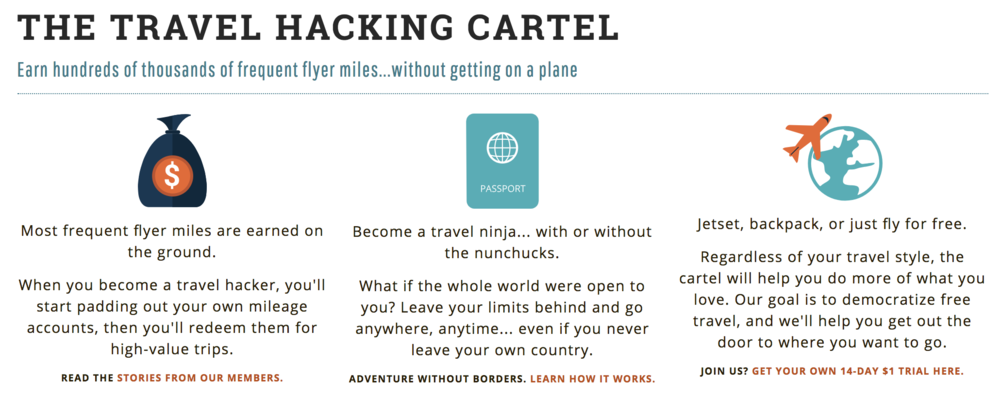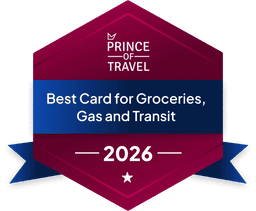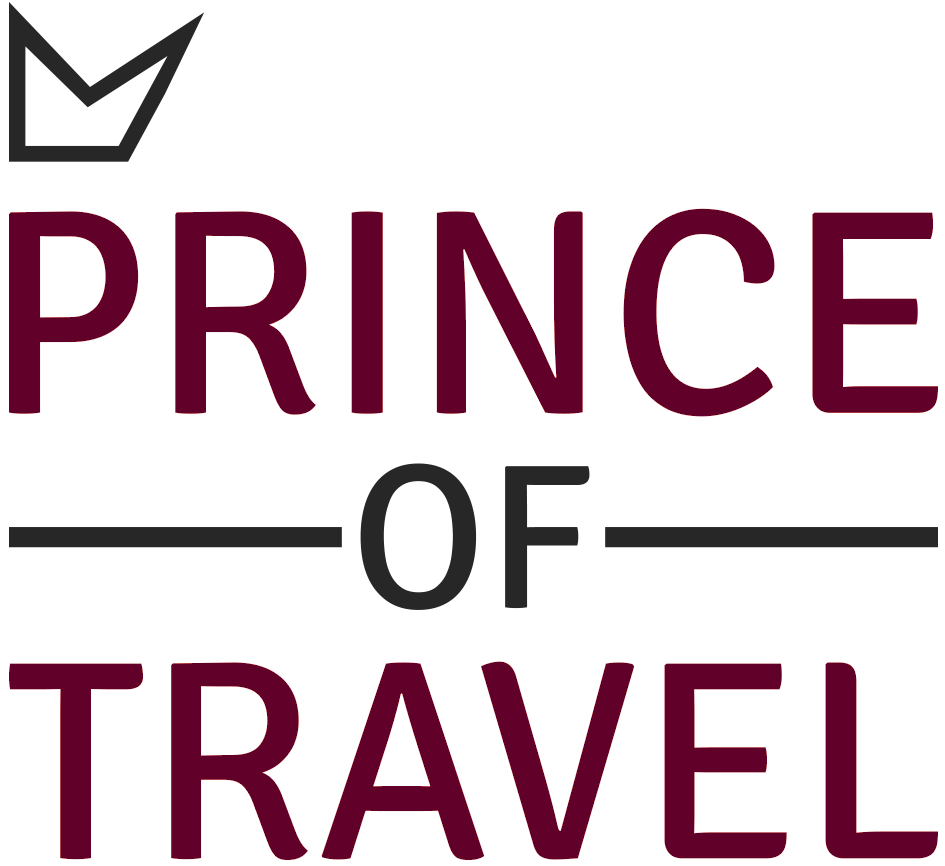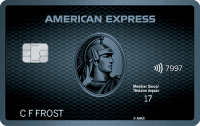Why I Hate “Travel Hacking”

In this post, I’m going to comment on a major pet peeve of mine, which probably doesn’t bother anyone else and is almost certainly inconsequential in the grand scheme of things. But hey, this is, after all, a blog, where pontificating about ultimately inconsequential things is my bread and butter. So let’s get started, shall we?
Specifically, I’m talking about the term “travel hacking” being used to refer to the practice of travelling the world using Miles & Points. In short, I think it’s a terrible descriptor of our hobby and can’t help but wish that people would stop saying it.
What’s the Origin of “Travel Hacking”?
As far as I can tell, “travel hacking” was coined by Chris Guillebeau, a popular travel blogger and online business guru who’s perhaps best known for publishing self-help books and visiting every country in the world by his 35th birthday. One of Chris’s projects was launching the so-called Travel Hacking Cartel, a subscription-based service that would provide members with tips on how to travel the world using Miles & Points.
Like many similar services out there, the Travel Hacking Cartel would charge you money for the privilege of having bits and pieces of information – which credit cards to get, which award redemptions to make, etc. – delivered to your inbox, even though all this information could’ve been obtained from doing your own research and networking with others. (Not that there’s anything wrong with this business model, given the success Chris and many others have had with it.)

Anyway, the term “travel hacking” seems to have spread from there, most likely because it was a catchy enough buzzphrase that managed to capture the attention of the masses from time to time. As its usage spread, it seems to be mainly used in content targeted towards beginners in the hobby, again as a buzzphrase that seeks to draw them into the game. “Want to see the world, but don’t want to pay full price? Try travel hacking!” That sort of stuff.
Why I Don’t Like It
The problem with “travel hacking” is obvious. “Hacking” is used to describe gaining unauthorized access into computer systems, and conjures up images of hooded figures typing away in a dark basement. It connotes shadiness at best and illegitimacy at worst, none of which are traits associated with award travel in reality.

Like any other worthwhile pursuit, travelling on points requires research, effort, and time, but what it doesn’t require is acting surreptitiously or breaking the law. When you break it down, maximizing credit card rewards is ultimately a perfectly normal consumer behaviour, and doing some simple math shows us that the way to maximize those rewards happens to be to redeem your rewards for travel.
We all play this game in different ways. Some of us are enthusiastic about luxury travel, others use points to treat themselves and their loved ones to unforgettable trips together, and still others like to use points to unlock parts of the world that would be prohibitively expensive otherwise. None of us are up to no good – there’s nothing about it that’s inherently underhanded or illegitimate, and it would be in the best interest of everyone in the community to distance themselves from using language that serves to reinforce such a notion.
There’s an argument that “hacking” has recently also come to mean a clever yet uncommon way to do something (as in “life hacks”). Still, I don’t think this usage is widespread enough to replace the original meaning with its negative connotations. Even granting this, I think that while travelling on points is still a relatively niche phenomenon, there’s enough of us out there to form a very sizeable community, based on recent meetup and conference attendances. We ought to be helping to foster this community by portraying the hobby as more normal and legitimate, not less.
But It’s Just a Name!
Yes, and names are important, as they guide people’s impressions of what we do.
When uninitiated folks ask me how I travel so much, or what my website is about, I usually tell them “it’s all about travelling on points”. Most people have heard a little bit about the subject here and there throughout their daily life, and so the conversation naturally flows onto how this is all possible, how the game should be played responsibly, etc.
On the other hand, I simply can’t imagine saying “it’s all about travel hacking” or “I’m a travel hacker” or “I travel hack” to someone I respect and expecting to be taken seriously.
These wonderful opportunities we have at our fingertips often seem too good to be true at first glance, and that can already induce a natural skepticism in potential new participants. It’s my thinking that framing this pursuit as something incredible, exciting, and full of possibilities (which I can say from experience is absolutely true) is far superior to using a term like “travel hacking” and, whether intentionally or not, portraying it as clandestine, scheme-like, or otherwise some kind of big secret, which only serves to discourage newbies from getting in the game.
Ultimately, I think my issue with “travel hacking” boils down to the fact that while it’s a cheap attention-grabbing moniker and therefore makes for a good buzzphrase, its negative connotations probably results in driving away more people from learning about the magic of Miles & Points than it attracts. I don’t know about you guys, but the unforgettable trips I’ve taken and the amazing memories I’ve made thanks to Miles & Points are a source of immense joy for me, and I do feel the obligation to “spread the love” as much as possible so that many others can derive the same enjoyment from seeing the world in style for cheap. It’s one of the main reasons I write this blog, after all.
Conclusion
This post is the only time you’ll ever hear me say “travel hacking”. For me, it’s always “Miles & Points” or “travelling on points”. I do think the usage is dying out a little, though, especially seeing as all the leading voices in these circles need to stay far, far away from being associated with “hacking” of any kind, in order to satisfy their commercial partners (see how the popular blog Hack My Trip rebranded itself as Travel Codex not too long ago, for this very reason).
I’ve shared my opinion – what’s yours? Do you call yourself a “travel hacker”? I’d love to know what the wider community thinks on this one, so give me your input in the comments below.

First-year value
$336
Monthly fee: $15.99
• Earn 1,250 points per month upon spending $750 per month for 12 months
Earning rates
Key perks
- Transfer to airline and hotel partners

Monthly fee: $15.99
• Earn 1,250 points per month upon spending $750 per month for 12 months
Earning rates
Key perks
- Transfer to airline and hotel partners





